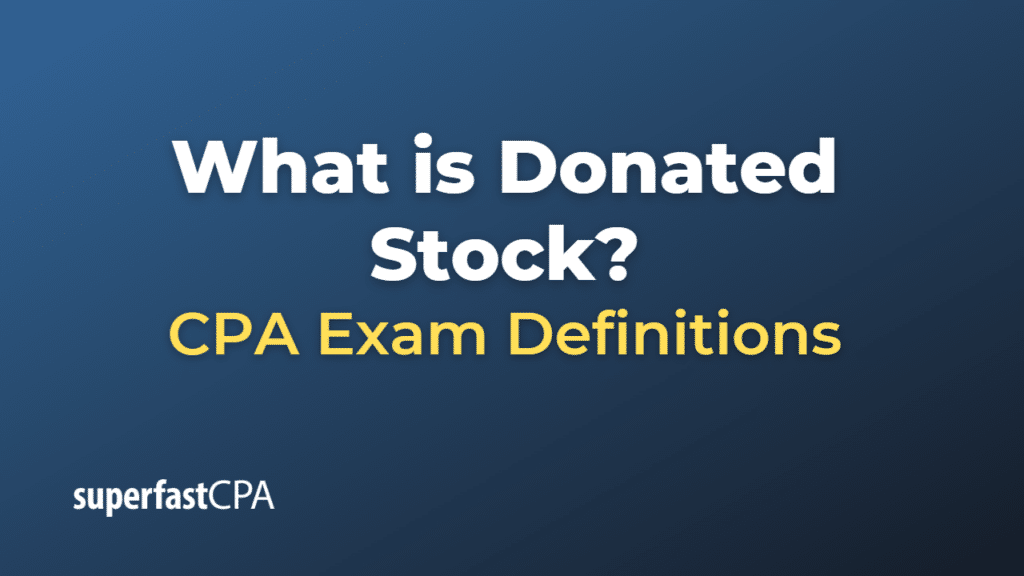Donated Stock
Donated stock refers to shares of a corporation that an individual or another corporation gives as a gift to a non-profit organization or charity.
Donating stock can provide significant tax benefits for the donor, especially if the stock has appreciated in value. As of my knowledge cutoff in September 2021, in the United States, if you’ve held the stock for more than one year, you can generally deduct the full fair market value of the stock as a charitable donation on your tax return. This allows you to avoid paying capital gains tax on the appreciated value of the stock, which you would have to pay if you sold the stock and then donated the cash proceeds.
The recipient non-profit organization can then choose to hold onto the stock and benefit from any future appreciation, or it can sell the stock and use the proceeds to fund its activities.
As always, tax laws can be complex and vary by country, so individuals considering donating stock should consult with a tax advisor or financial professional to understand the potential tax implications.
Example of Donated Stock
Suppose John bought 100 shares of XYZ Corporation at $10 per share a few years ago, spending a total of $1,000. Now, the market price of XYZ Corporation’s shares has risen to $50 per share. The total market value of John’s shares is now $5,000 ($50 per share * 100 shares).
John decides to donate all his 100 shares to a charitable organization, the ABC Foundation.
In this situation:
- John can claim a charitable tax deduction for the fair market value of the shares, which is $5,000. This can help reduce his taxable income for the year, assuming he itemizes his deductions on his tax return.
- John avoids capital gains tax that he would have owed if he had sold the shares. If John had sold the shares, he would have had a capital gain of $4,000 ($5,000 market value – $1,000 cost), which could be subject to capital gains tax.
- The ABC Foundation receives the 100 shares, which it could either keep in hopes of further appreciation or sell for $5,000, which could then be used to fund its charitable activities.
This is a simplified example, and the specific tax benefits would depend on John’s personal tax situation and the applicable tax laws, so it’s always a good idea to consult with a tax advisor or financial professional before making a donation of this type.














